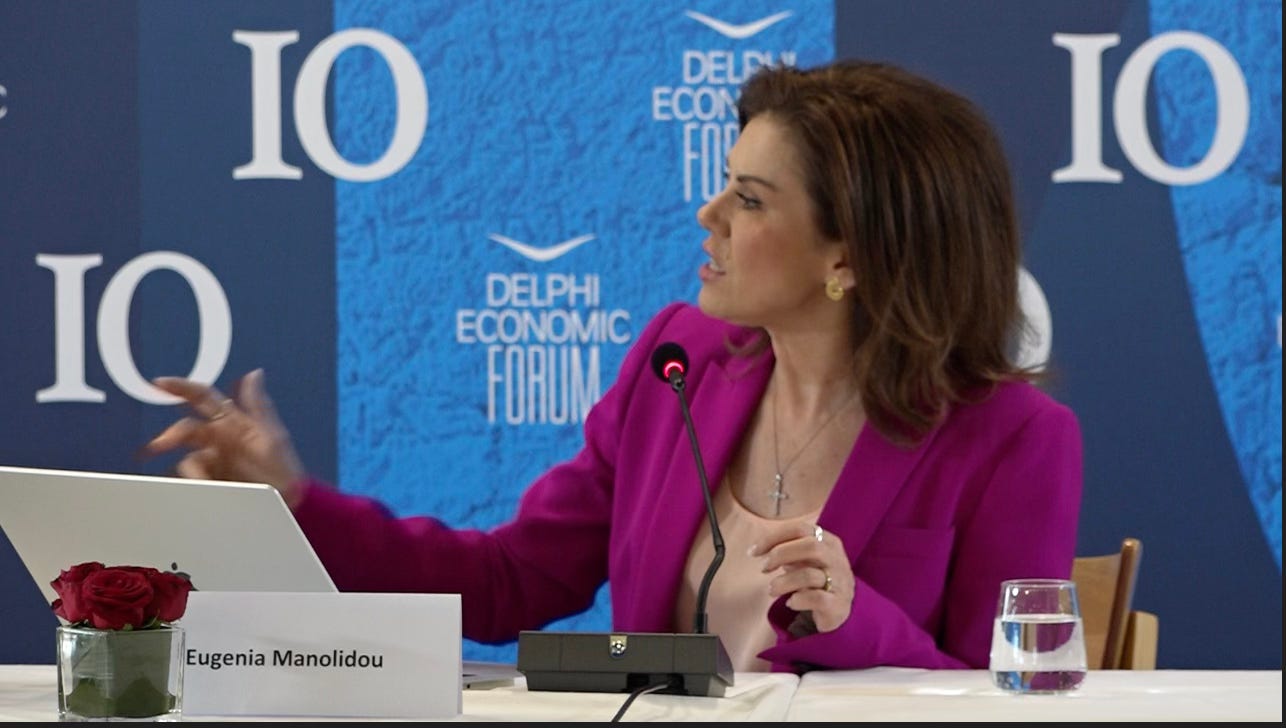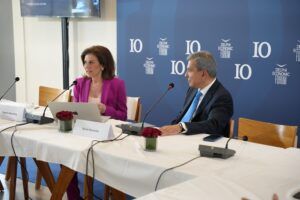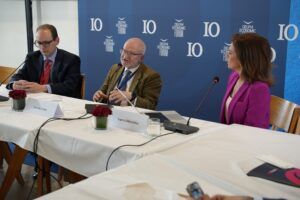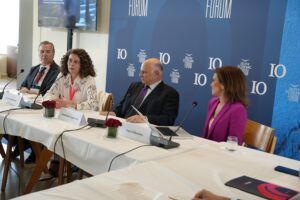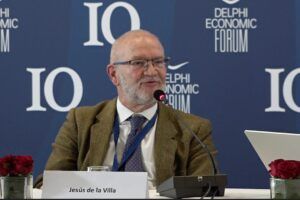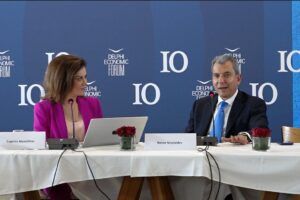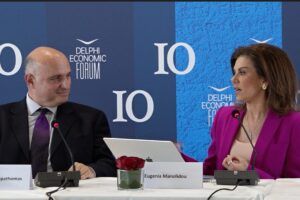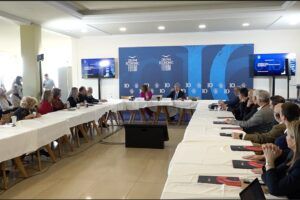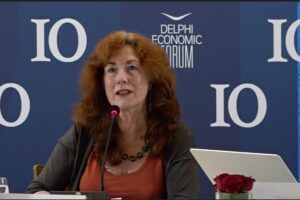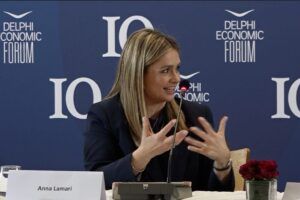by Eugenia Manolidou
Χαίρετε πᾶσαί τε καὶ πάντες! Ὡς εὖ παρέστητε ἐν ταύτῃ τῇ καλλίστῃ καὶ σπουδαιοτάτῃ συνόδῳ ἐν Δελφοῖς, ἐν τῷ τῆς ὑφηλίου ὀμφαλῷ.
With these words in Ancient Greek, we opened Delphi Classics – Classics in Praxis 2025, a dynamic section of the Delphi Economic Forum established in 2022. Its mission is to reposition Classical Studies and Ancient Greek at the heart of modern educational and cultural dialogue. In a forum traditionally focused on politics and economics, the inclusion of Ancient Greek – thanks to the vision of Symeon Tsomokos – was a gesture deeply symbolic and of genuine substance.
The opening panel, titled “The Vision of PeopleCert: How Classical Greek Can Become Part of Greece’s Soft Power,” featured Byron Nicolaides, President and CEO of PeopleCert. The discussion focused on the global certification of Classical Greek, a project that not only serves as a formal assessment tool but also offers students a powerful educational incentive; to engage meaningfully with the language, to set personal goals, and to recognize that Classical Greek is a subject with international resonance and recognition. The introduction of advanced certification levels (C1 and C2), the growing global interest and the need for continued collaboration and innovation were all central themes of our discussion.
The second panel, “The Certification of Ancient Greek as an International Educational Passport,” brought together Professor Amfilochios Papathomas (National and Kapodistrian University of Athens), Dimitris Grozoudis (Director of the Aristotelio College of Thessaloniki) and Vasia Papadopoulou (Director of Platon Schools, Athens). They discussed the importance of student connection to the language, the power of experiential teaching, and the role of certification as a strong motivator. The conversation highlighted the need for structured teacher training and the possibility of re-establishing Classical High Schools in Greece, where Ancient Greek and Classical culture would hold a central place.
The third panel, “Classical Greek as a Living Language: Active Teaching and the Greek Advantage,” featured Professor Jesús de la Villa, President of FIEC (Fédération Internationale des Associations d’Études Classiques), and Professor Christos Tsagalis (Aristotle University of Thessaloniki). The discussion focused on a key insight: that the teaching of Ancient Greek urgently needs a methodological shift. Professor de la Villa, a globally respected figure and leader of the world’s most important federation of Classical Studies associations, emphasized the need for oral, experiential, and active engagement with the language, leveraging modern technology and its structural continuity with Modern Greek. His visit to our school, Elliniki Agogi following the Forum, reaffirmed his genuine interest and deep appreciation for the innovative and immersive teaching already taking place in our school.
The evening concluded with the panel “From Logos to Ethos: The Timeless Power of Ancient Greek Thought,” featuring Angie Hobbs (University of Sheffield), Anna Lamari (Aristotle University of Thessaloniki), and Christos Kremmydas (Royal Holloway, UK). Together, they illuminated the profound relevance of ancient Greek thought in today’s discussions on democracy, justice and ethics. The panel explored the philosophical depth of the language, the educational value of rhetorical training, and the importance of precise conceptual understanding through original texts.
Delphi Classics – Classics in Praxis 2025 was a call for action and transformation: in method, in perspective and in how we transmit language and learning to the next generation, because Classical Greek is not just a subject; it is our language, a language of education, culture, and thought.
I warmly thank all the professors and distinguished speakers who joined us on this inspiring journey. From the bottom of my heart, I thank the Delphi Economic Forum and PeopleCert for their trust, support, and heartfelt commitment
